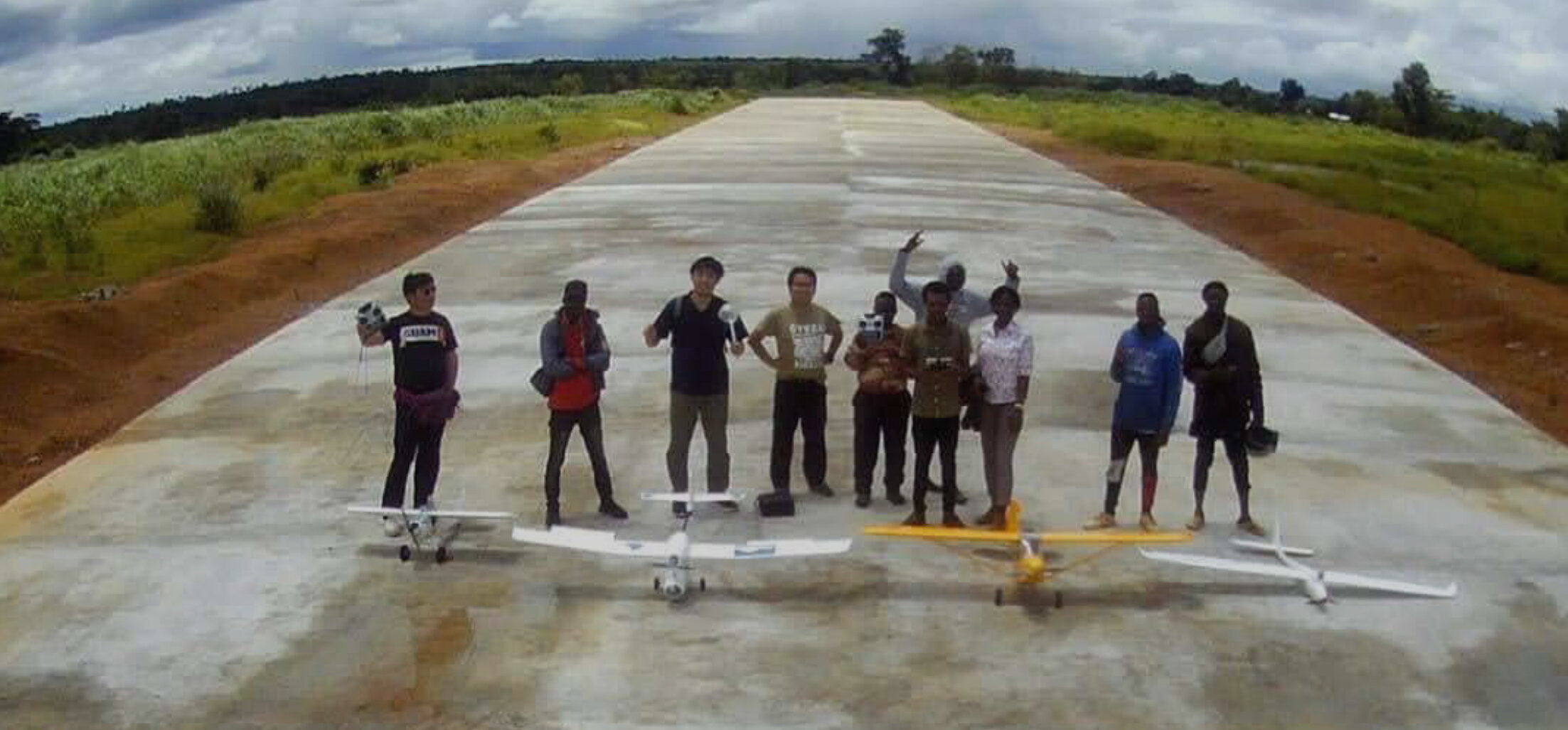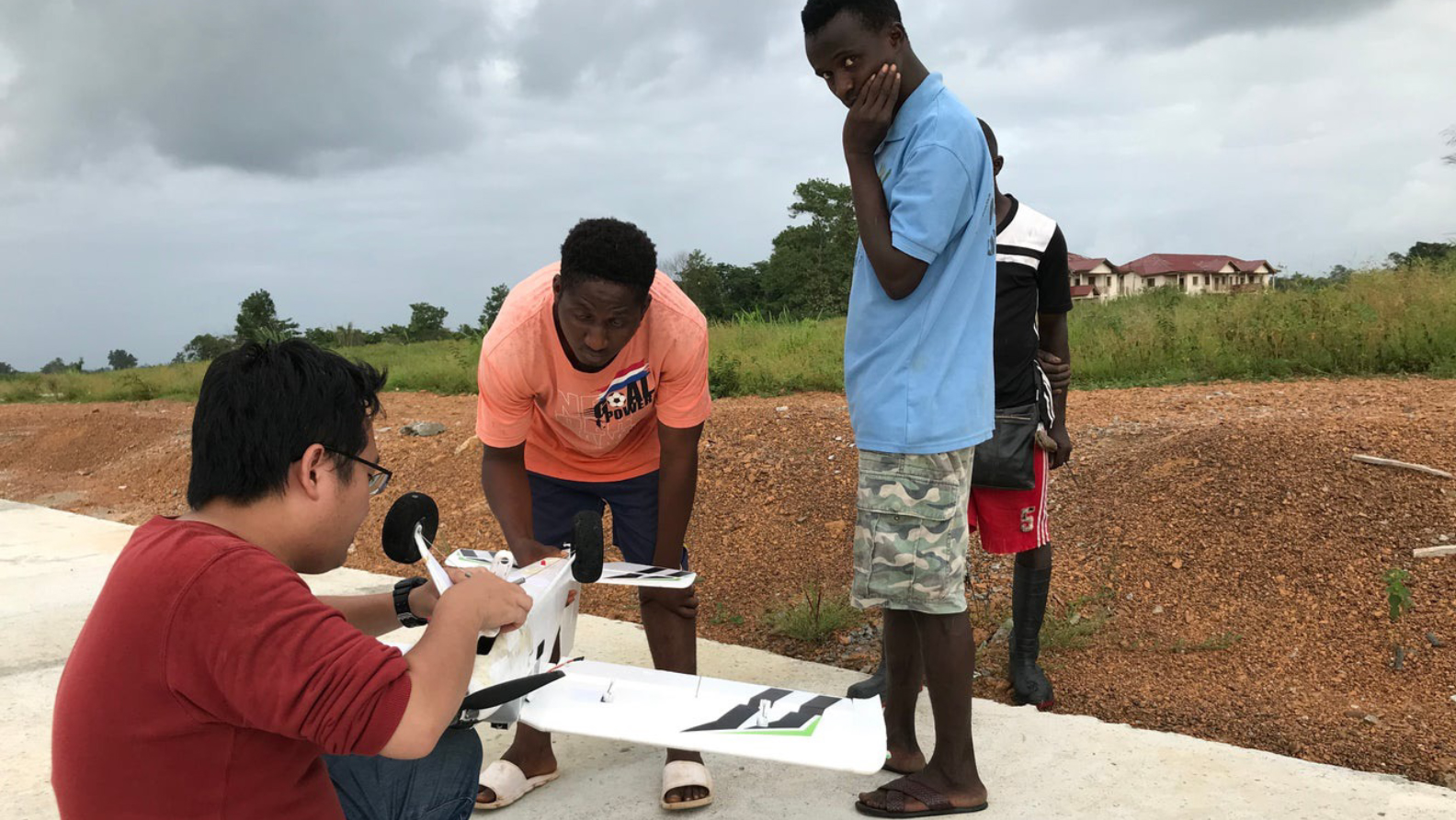
- New
SORA Technology: Fighting Malaria and
Climate change with Drones
SORA Technology is a Japanese drone startup fighting malaria. By taking aerial drone images of puddles and leveraging AI technology, SORA Technology can detect and manage puddles that are at a higher risk of harboring mosquito larvae. Due to the effects of recent climate change, the area of mosquito-borne infectious diseases is rapidly expanding. SORA Technology's journey showcases, how entrepreneurs can overcome the challenges start-ups face operating in LMICs and the need for the international community to establish an environment that empowers entrepreneurs to create impact-driven businesses.
Impacting Global Health
- a Business Opportunity?
In 2021, 619,000 people died from malaria1. Frequently overlooked due to its prevalence in Sub-Saharan Africa, it remains a life-threatening disease causing thousands of deaths every year. SORA Technology is a Japanese drone startup tackling this problem by optimizing Larval Source Management (LSM). Founded by Yosuke Kaneko, former drone expert at JAXA (Japan Aerospace Exploration Agency) and strategy manager at Accenture.
In 2018, Kaneko was working for a drone startup called as chief strategy officer, when he received a mail from Institute Pasteur (IP), a biomedical research center based in Paris. The challenge ? can Kaneko's drones tackle health issues in Sub-Saharan Africa. Without a second thought, Kaneko booked a flight to find out. Once on the ground, Kaneko engaged in heated discussions with local government officials and health experts ? how can drones create health impact in Sub-Saharan Africa? While Kaneko was unable to create a concrete business model during this trip, he realized one thing ? not only can drones unlock significant impact but there is also a huge market opportunity2.
Kaneko reflects on his trip to Sub-Saharan Africa and the excitement he felt. "In Sub-Saharan Africa, I saw firsthand the magnitude of the problem in health care and how people were in desperate need of innovative solutions. I knew right there and then that here in Sub-Saharan Africa, there was a large enough market for me to start an impact-driven yet profitable business."
Opportunities and Challenges of
Impact Businesses in LMICs
2 years later ? Kaneko founded SORA Technology. One of their core services is called SORA Malaria Control. By taking aerial drone images of puddles and leveraging AI technology, this service can detect and manage puddles that are at a higher risk of harboring mosquito larvae. The impact was immense - Larval Source Management (LSM) was optimized by 60%, contributing to the more effective control of mosquitos that serve as vectors of malaria. The service is currently in its pilot stage and full rollout is expected in 20243,4.
Despite SORA Technology's impactful solutions to combat malaria, building impact-oriented start-ups in Sub-Saharan Africa had many hardships. One challenge was overcoming or "creating" regulations needed to simply operate the business. As many countries lack rules that regulate emerging technologies such as drones, SORA Technology needed to discuss with local government officials to set regulations that ensure safe and effective usage of drones. In the case of Sierra Leone, while the Ministry of Health and Sanitation was keen on implementing SORA Technology's solution, the Ministry of Transport and Aviation was at first hesitant due to safety concerns. SORA Technology was however able to convince the Ministry by proposing appropriate regulations on drone safety and offering a set of supplementary services such as infrastructure development, drone insurance, and capacity building of drone pilots.5
Another challenge was setting appropriate impact KPIs that could be used to not only maximize impact but also engage different stakeholders. From early on in their startup journey, SORA Technology was aware of the importance of measuring their target impacts, in order to effectively communicate their impact story. Therefore, SORA Technology worked hard to identify their impact KPIs and decided to measure the cost effectiveness of Larval Source Management (LSM). The effect was multifold - by measuring and effectively communicating these KPIs, SORA Technology succeeded in recruiting motivated individuals and engaging with impact minded investors. Furthermore, SORA Technology believed that by setting impact KPIs that were aligned with their financial KPIs, they were able to simultaneously increase impact and scale their business. Reflecting on the importance of KPIs in driving a successful impact business, Kaneko urged further standardization of KPIs. "Setting, managing, and communicating impact KPIs have been crucial to the success of our business. We hope that further consensus will be built on how companies should measure and manage their impact in Global Health so that we can communicate the impact of our business in an increasingly objective and effective manner."
The case of SORA Technology showcases how each individual can make a real impact in Global Health. It also demonstrates how impact-oriented startups can overcome the challenges of operating in LMICs. Triple I is committed to further encouraging impact-driven startups such as SORA Technology by facilitating discussion between various stakeholders and working together to create rules and standards that facilitate impact business and investment.

